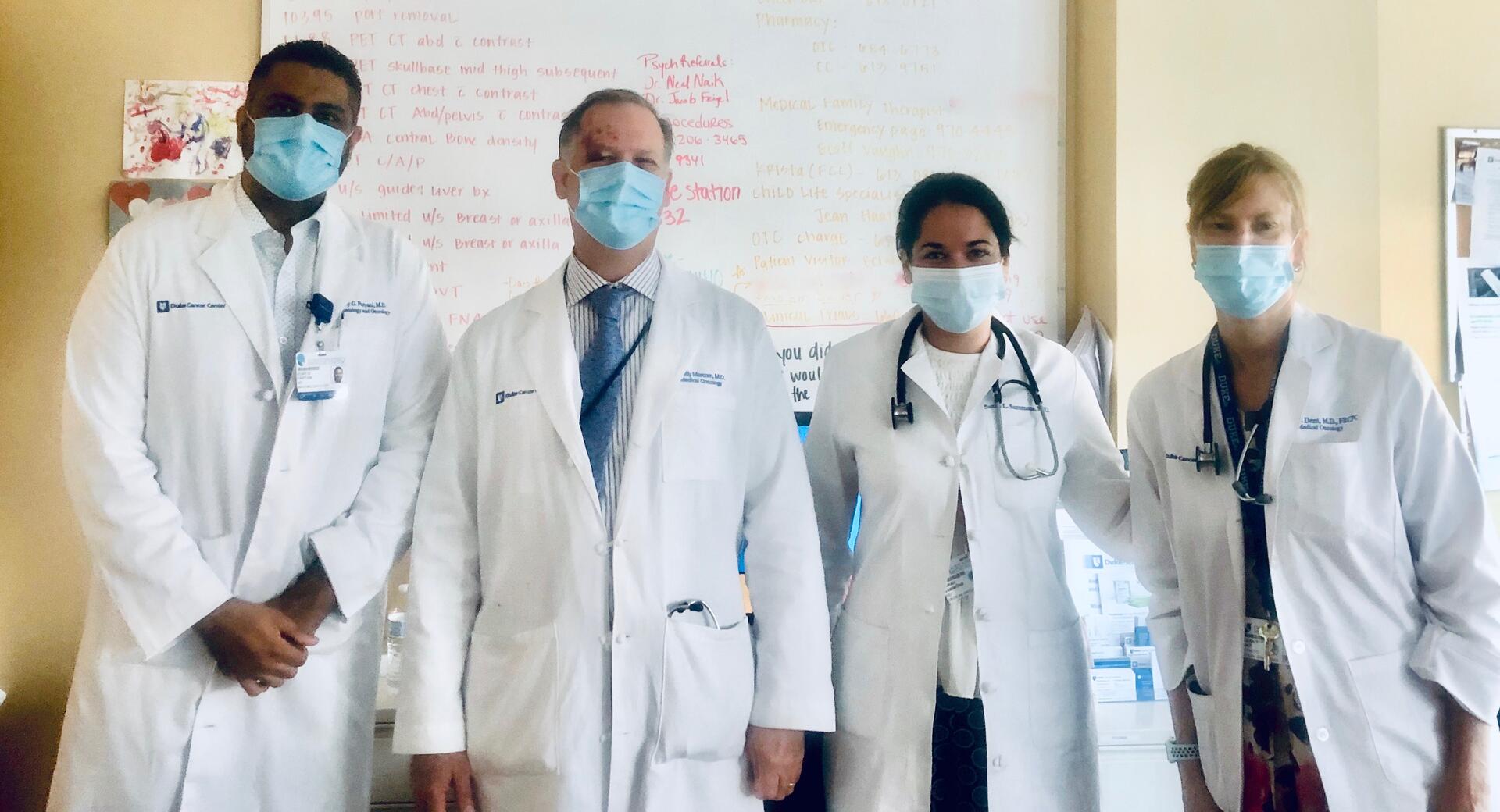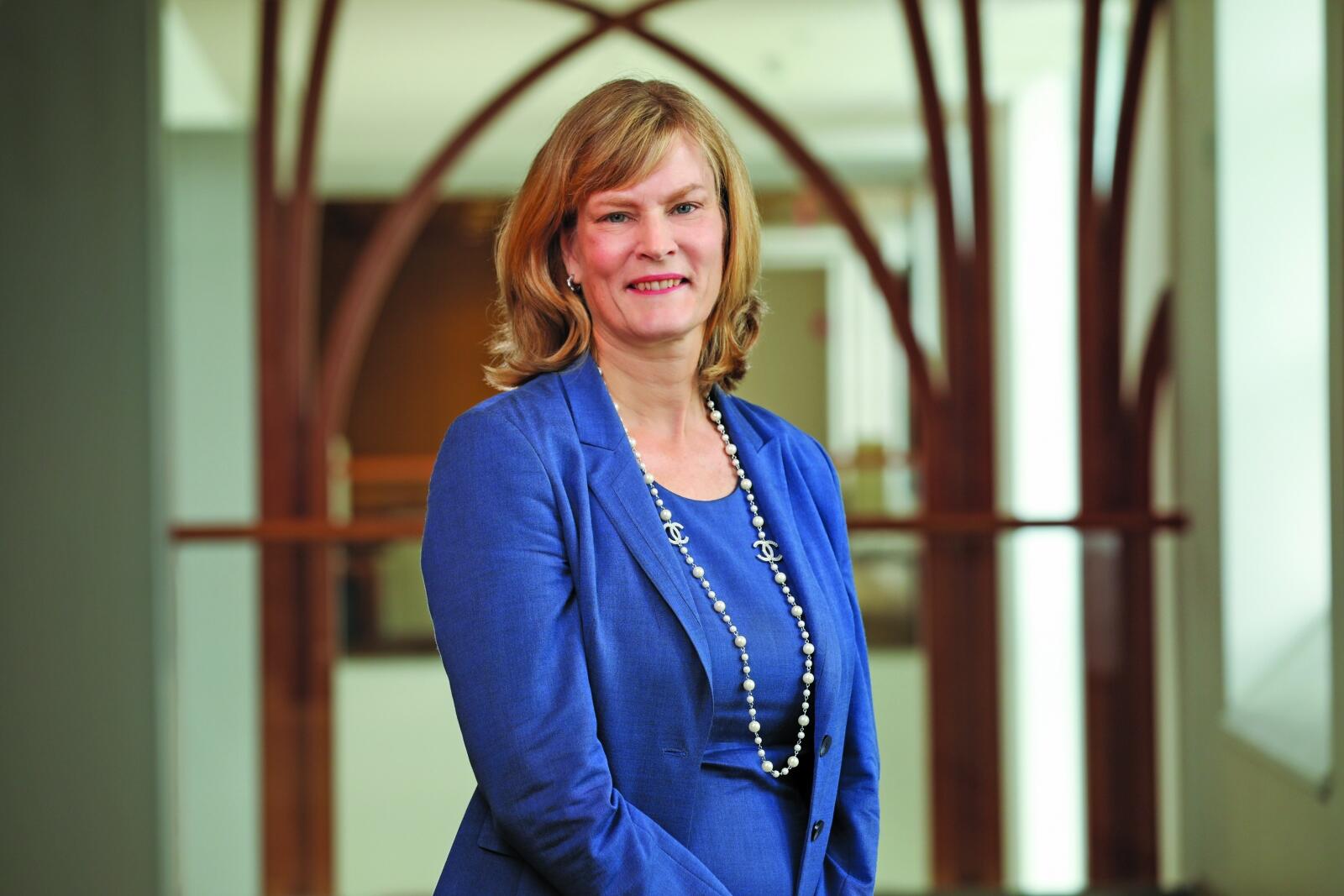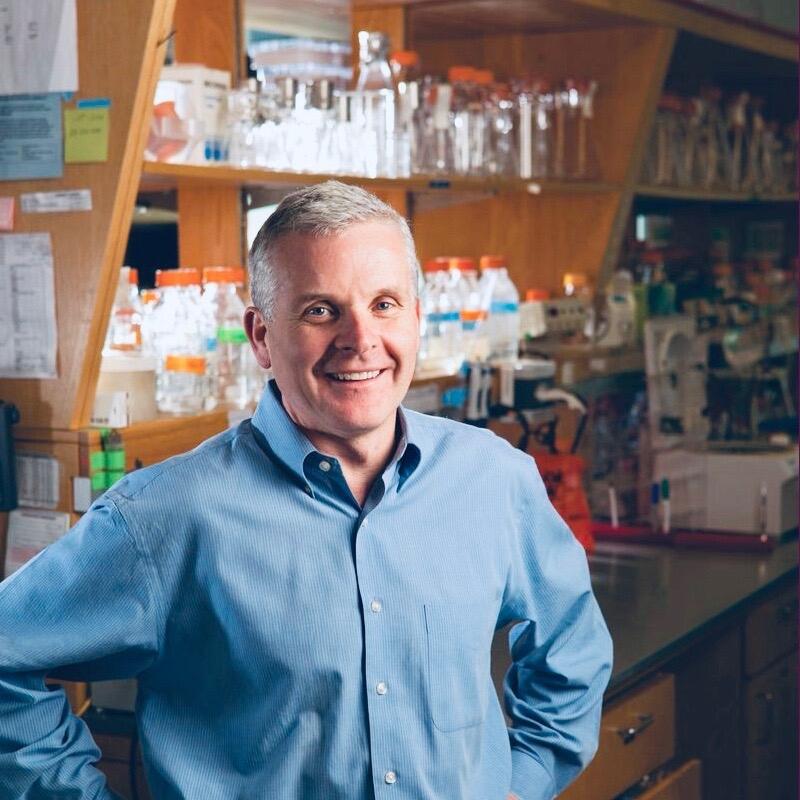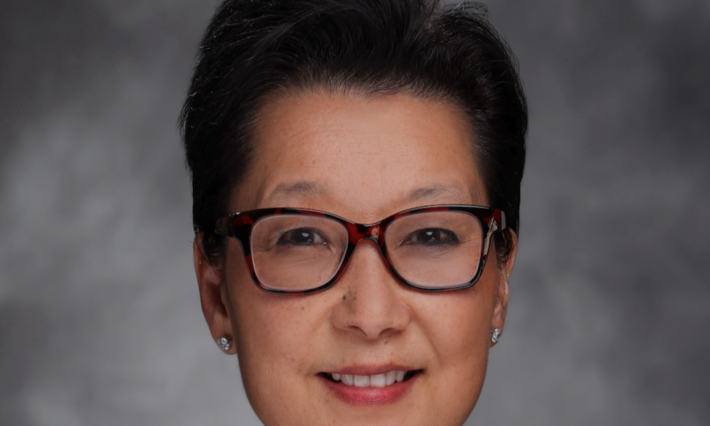UPDATE 2 (May 10, 2021): The 24-member DCI team raised $7,895.27, topping the Top Corporate Teams leaderboard and coming in third on the Top Teams list. Team co-captain Karen Johnson, MD, MS, took the number 6 spot on the Top Participants leaderboard, having raised $2,793.20.
UPDATE 1 (May 1, 2021): WRAL aired an interview with Sarah Sammons, MD, on the day of the Triangle Race for the Cure — Doctor, daughter, cheerleader sees all angles of breast cancer fight
DCI oncologists and researchers are supporting the Komen mission “for a cure” — fighting breast cancer on all fronts. Learn more & join them on May 1!
The 2021 Susan G. Komen Triangle Race for the Cure, presented by Duke Cancer Institute, is tomorrow — May 1, but it’s not too late to join Team DCI (virtually) at the event !
This year's event will be streamed through the event Facebook page and YouTube. The Race-Day program includes:
- a live warm-up at 10 a.m. to send you off and running (or walking) on your 5K self-designed routes
- a survivor/thriver virtual meet-up
- recognition of the top fundraising individuals and teams
- videotaped messages of support from the community
It’s a #RaceWhereYouAre experience. Whether in your neighborhood, the park, the forest, the beach…the sky is literally the limit.
Registration, at a cost of $25, will close at midnight on May 1 (the very end of Saturday), with donations continuing to be accepted well after Race Day. Once you register, you’ll have access to the virtual Race-Day program, but you'll get your Race-Day packet with a t-shirt, bib and a DCI visor in the mail after the event.
Team DCI in currently in second place in the Corporate Challenge and climbing. Captained by an all-star lineup of DCI breast oncologists and researchers including Sarah Sammons, MD, Susan Dent, MD, FRCPC, Karen Johnson, MD, MS, Vijay Paryani, MD, and Laura Rosenberger, MD, MS, Team DCI is raising critically important funds for patient support and breast cancer research.
They’re champions for the cause. Committed to showing support for their patients on Race-Day. And committed to bringing new treatments and treatment strategies to their patients.
“Race-Day is an incredible atmosphere. It’s an atmosphere of achievement and celebration and those two emotions don’t always partner very readily with the words ‘breast cancer,’” said DCI breast radiologist and new-to-the team co-captain Karen Johnson. “So, for the women who have that diagnosis and all of the women who fear that diagnosis, Race-Day is very special. It shows us that there is a community of support and love and it brings us hope.”
Johnson’s research interests include detecting and diagnosing early-stage breast cancer so women have the best chance possible to conquer the disease early.
“The appropriate and best use of breast MRI is of specific interest to me as well as finding ways to help women cope with and reduce the anxiety experienced in conjunction with mammography,” she said.
Vijay Paryani is a breast medical oncologist who sees patients at Duke Women’s Cancer Care Raleigh and Duke Cancer Center Cary. He also does inpatient consults at WakeMed as part of the new Cancer Care + initiative.
Paryani is new to DCI, having joined Duke in August 2020 directly after completing his fellowship at Wake Forest Baptist Medical Center and in the midst of the Covid-19 pandemic. Like Johnson, this is his first year serving as a team co-captain. He’s all-in for the Triangle Race for the Cure and all-in for his patients.
“When my patients see me, they may be going through the scariest and most difficult time in their lives. My goal is always to do everything in my power to improve their physical and emotional well-being. My patients are family to me,” said Paryani who's committed to bringing new clinical trial opportunities to DCI’s Wake County locations. “I have witnessed firsthand the devastating effect this disease can have patients and their families.”
“Our patients who’ve been facing both breast cancer and the isolation of a global pandemic need us now more than ever,” said Sarah Sammons, MD, who this year was named first ever medical chair for the Komen Triangle Race for the Cure. “As a breast oncologist and clinical researcher, I support Susan G. Komen in their endeavors to raise funds specifically related to grant funding of research to find novel therapies for early stage and late stage/metastatic breast cancer.”








